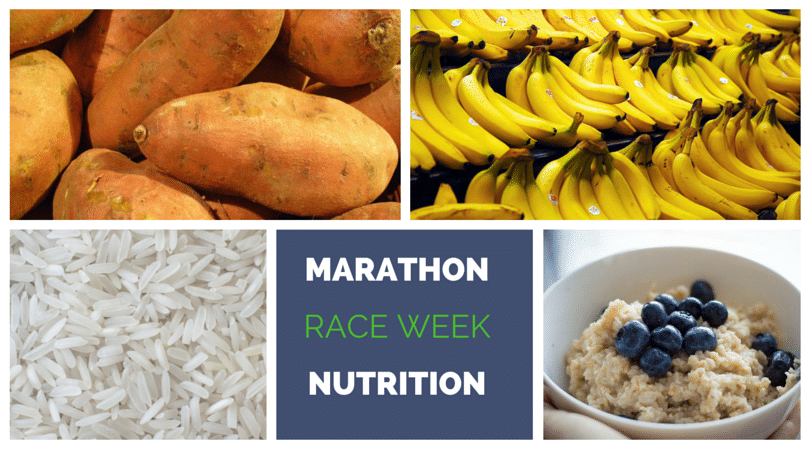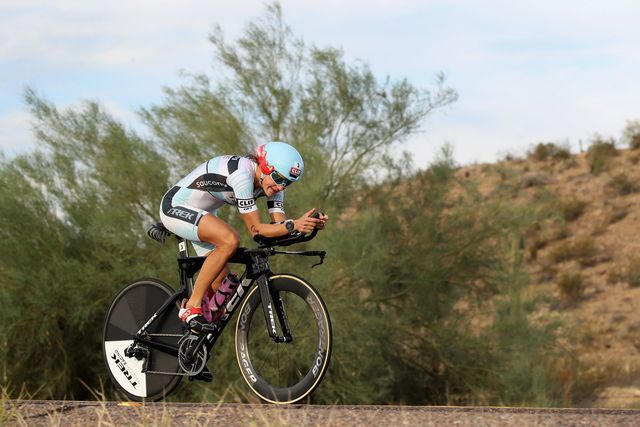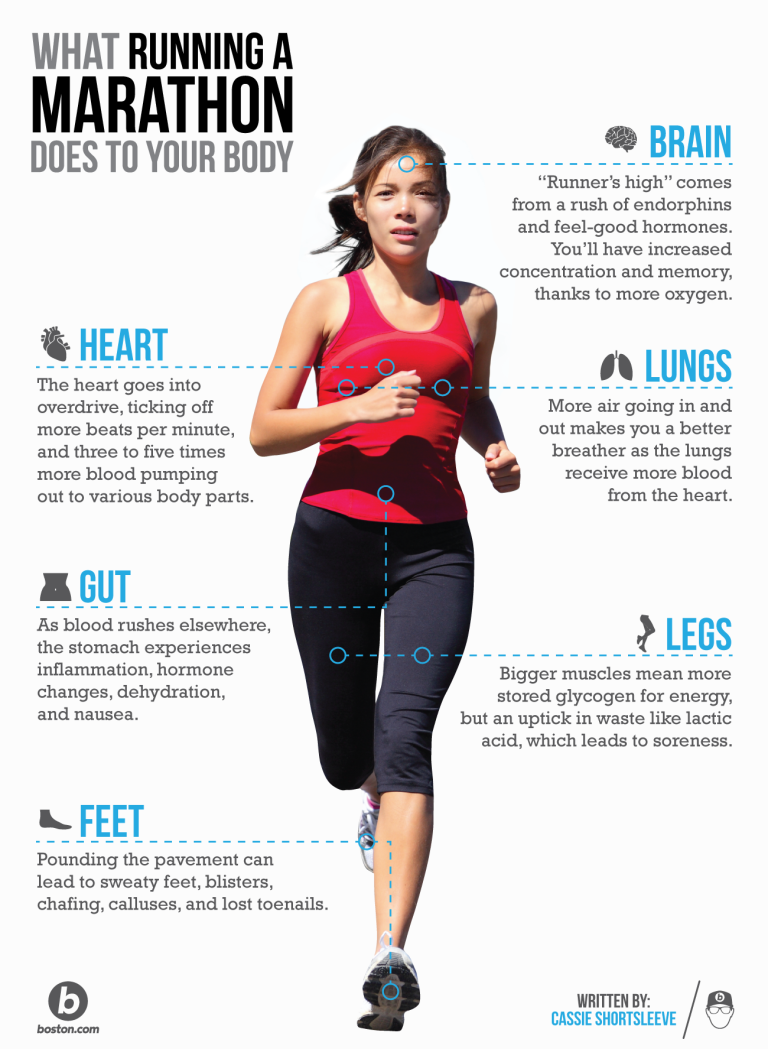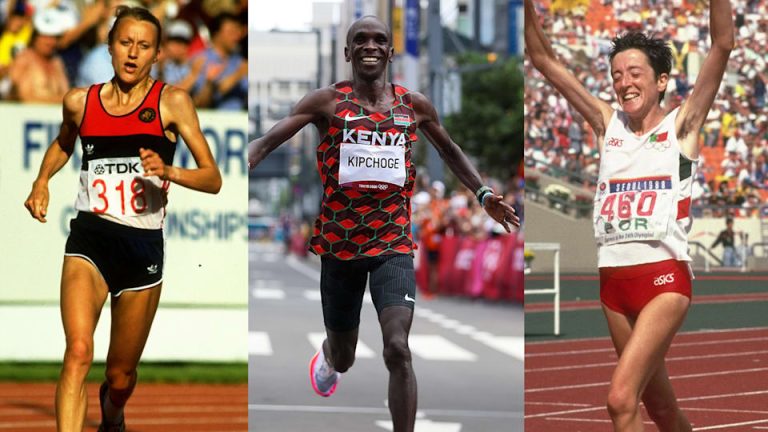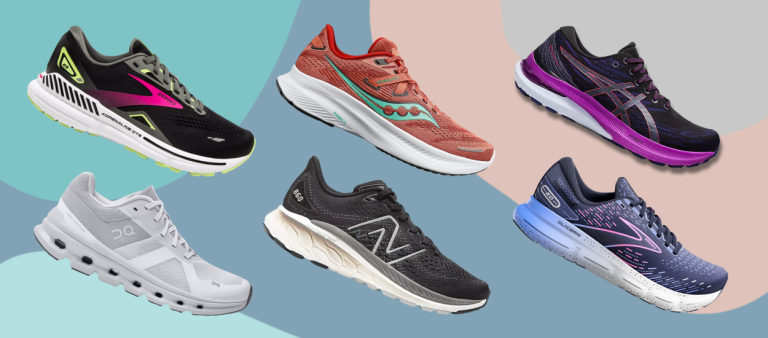Should You Eat before Marathon
Eating before a marathon can help fuel your body and improve performance. Opt for easily digestible carbohydrates.
Preparing for a marathon involves many important factors, including your nutrition plan. One question that often arises is whether or not you should eat before the race. Proper pre-race nutrition can impact your performance and overall experience during a marathon.
Understanding the importance of fueling your body adequately before the event is essential for optimal results. We will delve into the benefits of eating before a marathon and provide guidelines on what foods to consume to ensure you are properly fueled for the challenge ahead.
The Importance Of Pre-marathon Nutrition
Proper pre-marathon nutrition is crucial for optimal race performance. Consuming a balanced meal with carbohydrates and protein 2-3 hours before the marathon provides the necessary energy and sustenance without causing gastrointestinal distress. Skipping this meal may lead to fatigue and decreased stamina during the race.
Eating the right foods before a marathon is crucial for optimal performance. Pre-marathon nutrition plays a significant role in providing the necessary energy, replenishing glycogen stores, and maintaining hydration levels. Here, we will explore the two key aspects of pre-marathon nutrition: carbohydrates and energy, and hydration and electrolyte balance.Carbohydrates And Energy
Carbohydrates are the primary source of energy for our bodies during exercise. As a marathon runner, it is crucial to consume enough carbohydrates in the days leading up to the race. Carbohydrates provide the necessary fuel to sustain long-distance running and prevent early fatigue. Including complex carbohydrates, such as whole grains, legumes, and vegetables, in your pre-marathon meals will ensure a steady release of energy over an extended period. During pre-marathon training, it is recommended to gradually increase your carbohydrate intake to maximize glycogen stores. Glycogen is stored in the muscles and liver and serves as a readily available energy source during prolonged exercise. Consuming foods rich in carbohydrates, such as pasta, brown rice, and oatmeal, will help boost glycogen levels. Incorporating these foods into your pre-marathon diet will provide a sustained energy release during the race.Hydration And Electrolyte Balance
Maintaining proper hydration and electrolyte balance is essential for marathon runners. The human body loses fluids through sweat during prolonged physical activity, and dehydration can negatively impact performance. Hydrating well before the race is key to staying adequately fueled and preventing dehydration during the run. To hydrate effectively, it is recommended to drink water regularly throughout the day leading up to the marathon. Additionally, consuming electrolyte-rich beverages, such as sports drinks or coconut water, can replenish the electrolytes lost through sweat. Electrolytes, including sodium, potassium, and magnesium, help regulate fluid balance, reduce muscle cramps, and support efficient nerve function. Monitoring your hydration levels is essential during pre-marathon nutrition planning. Pay attention to the color of your urine – clear or light yellow indicates good hydration, while dark yellow signifies dehydration. Having a well-hydrated body will keep you energized and focused during the race. In conclusion, proper pre-marathon nutrition is vital to enhance performance and ensure an enjoyable marathon experience. Focusing on consuming adequate carbohydrates for long-lasting energy and maintaining hydration levels and electrolyte balance will help you go the distance. Remember to listen to your body and make adjustments to your nutrition plan based on your unique needs. Start your marathon journey with the right fuel, and you’ll be well on your way to crossing that finish line!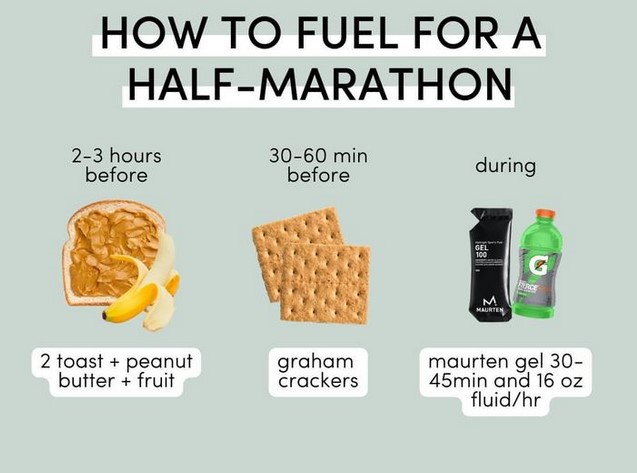
Credit: www.runtothefinish.com
Timing Your Pre-race Meal
Timing Your Pre-Race Meal is crucial for marathon runners. Fueling up before the race provides energy and prevents hunger during the race, but the right timing is key. Find the optimal time to eat beforehand to maximize your performance and avoid discomfort.
The 24-hour Rule
Eating a balanced meal 24 hours prior to your marathon provides ample time for digestion.
The 2-4 Hour Window
Aim to consume a light meal 2-4 hours before the race to ensure optimal energy levels.
What To Eat Before A Marathon
Choosing the right foods before a marathon can greatly impact your performance and energy levels. By fueling your body with the appropriate nutrients, you can optimize your race day experience. Here are some essential categories of foods to consider:
Carbohydrate-rich Foods
Eat foods like whole grains, fruits, vegetables, and legumes for sustained energy. These carbs provide the necessary fuel for your muscles during the race.
Lean Proteins And Healthy Fats
Include lean proteins such as chicken, fish, or tofu for muscle repair and healthy fats like avocado or nuts for satiety and sustained energy.
Considerations For Sensitive Stomachs
Opting to eat before a marathon with a sensitive stomach requires caution and planning. Focus on easily digestible foods like bananas, oatmeal, or toast to prevent stomach discomfort during the race. Experiment with different options during training to find what works best for you on race day.
Considerations for Sensitive Stomachs For marathon runners with sensitive stomachs, fueling the body before a race can be a tricky balancing act. While it’s important to eat enough to provide the necessary energy, certain foods can cause discomfort or gastrointestinal issues during the race. To ensure a successful and comfortable marathon experience, it’s critical to consider the needs of sensitive stomachs when planning your pre-race meal. H3: Low-Fiber Options One of the key considerations for individuals with sensitive stomachs is choosing low-fiber options for their pre-race meal. Foods high in fiber can be difficult to digest and may lead to bloating, gas, or even diarrhea during the marathon. Opting for low-fiber alternatives can help minimize these issues and provide a smoother digestive experience. Consider incorporating the following low-fiber food options into your pre-race meal: 1. White bread or bagels without seeds 2. White rice or pasta 3. Cooked vegetables like carrots or squash 4. Peeled and deseeded fruits such as bananas or applesauce By focusing on low-fiber options, you can reduce the risk of experiencing digestive discomfort, allowing for a more enjoyable marathon experience. H3: Avoiding Potential Trigger Foods Another important consideration for individuals with sensitive stomachs is avoiding potential trigger foods. These are foods that are known to cause digestive issues or discomfort in some individuals. While trigger foods may vary depending on the person, there are a few common culprits that marathon runners with sensitive stomachs may want to steer clear of. These can include: – Spicy or heavily seasoned foods – High-fat foods such as fried items or fatty cuts of meat – Dairy products – Caffeine or carbonated beverages Skipping these potential trigger foods in your pre-race meal can decrease the chances of experiencing digestive issues during the marathon. Instead, opt for mild and easily digestible foods that are less likely to cause discomfort. In conclusion, if you have a sensitive stomach, it’s important to carefully consider the foods you consume before a marathon. Choosing low-fiber options and avoiding potential trigger foods can help prevent digestive issues and ensure a more pleasant race day experience. Remember, everyone’s digestive system is unique, so it may be helpful to experiment with different foods during your training to identify what works best for you.Eating Strategies For Race Day
Race day nutrition plays a crucial role in the performance and endurance of marathon runners. The food and fuel consumed before and during the marathon can make or break the race. Proper eating strategies can help ensure runners have the energy and stamina to complete the race. Let’s delve into the essential eating strategies for race day, including pre-race breakfast and fueling during the marathon.
Pre-race Breakfast
Pre-race breakfast is a vital part of a runner’s race day preparation. It should consist of easily digestible carbohydrates, moderate proteins, and some healthy fats to provide sustained energy throughout the race. A balanced pre-race breakfast can include options such as:
- Fruit and yogurt
- Oatmeal with a banana
- Whole grain toast with nut butter
Eating about 2-3 hours before the race allows for proper digestion and reduces the risk of stomach discomfort during the marathon.
Fueling During The Marathon
Fueling during the marathon is crucial to maintain energy levels while running. Runners should consume a combination of water and energy gels, chews, or sports drinks to stay hydrated and replenish glycogen stores. It’s important to take in small amounts of fuel at regular intervals rather than consuming a large amount at once, which can lead to digestive issues. Maintaining a steady intake of carbohydrates and electrolytes can help prevent fatigue and improve performance.
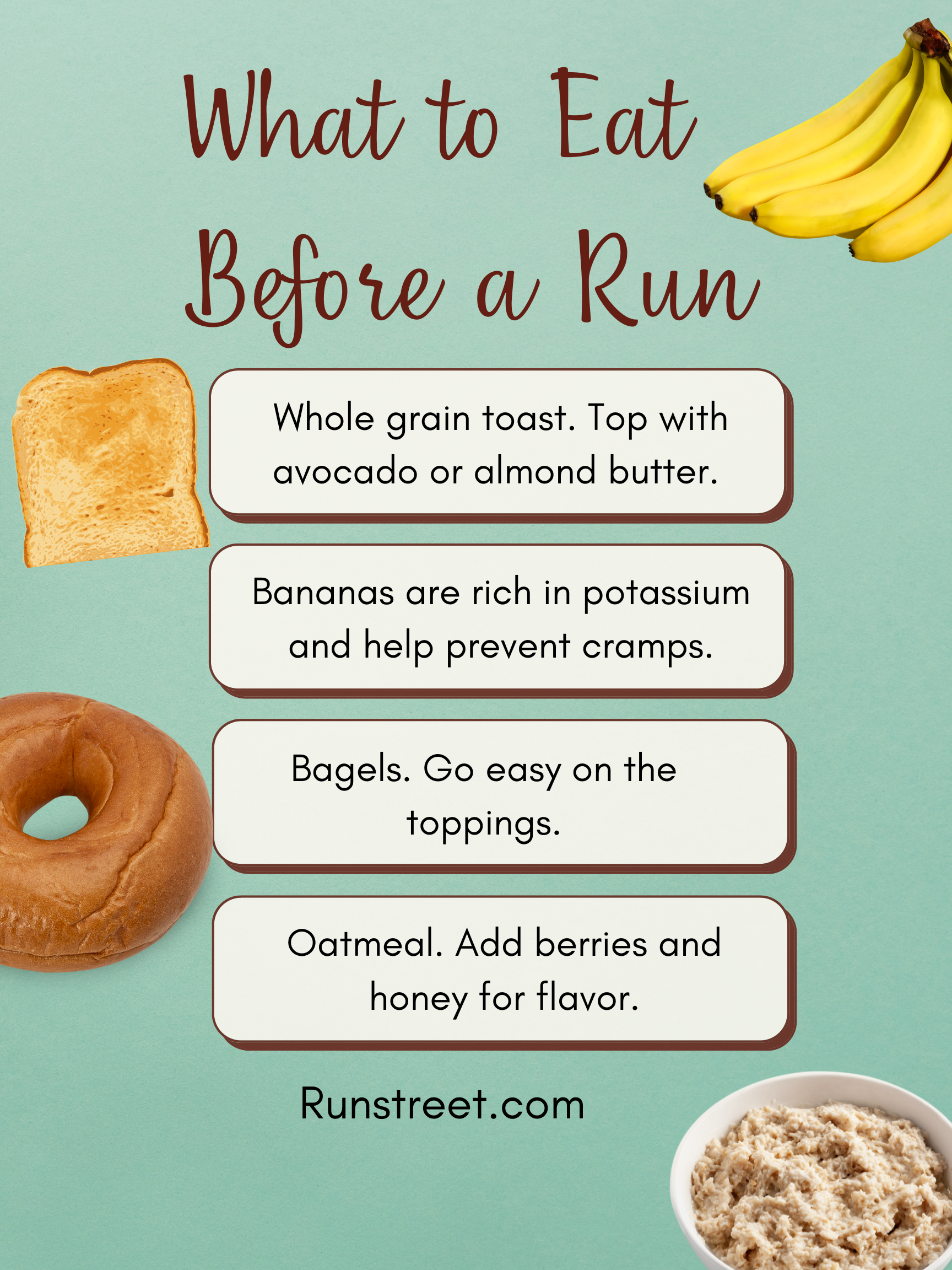
Credit: www.runstreet.com

Credit: nutritionforrunning.com
Frequently Asked Questions On Should You Eat Before Marathon
How Many Hours Before A Marathon Should I Eat?
For optimal performance, eat a light, carb-rich meal 2-4 hours before a marathon. Avoid new or high-fat foods that could upset your stomach.
What Should I Eat 30 Minutes Before A Marathon?
Eat a balanced and easily digestible meal 30 minutes prior to a marathon. Include carbohydrates for energy, such as fruits or whole grains. Avoid fatty or high-fiber foods that can cause discomfort. Hydrate with water or a sports drink, and consider a light snack like a banana or energy bar for sustained energy.
Can You Eat Too Much Before A Marathon?
Yes, eating too much before a marathon can cause discomfort and digestive issues. Stick to a balanced meal 2-3 hours before, including carbs, protein, and a little fat. Avoid overeating to prevent feeling sluggish and heavy during the race.
Conclusion
Eating before a marathon can have a significant impact on your performance and overall experience. While some runners may benefit from fueling up before the race, others may find it uncomfortable or unnecessary. Ultimately, the decision should be based on individual preferences, training routines, and the distance of the race.
Listen to your body, experiment, and find what works best for you. Remember, proper nutrition and hydration throughout your training are just as important as pre-race meals. So, consider consulting with a nutritionist or sports dietitian to determine the optimal eating strategy that will help you achieve your marathon goals.

